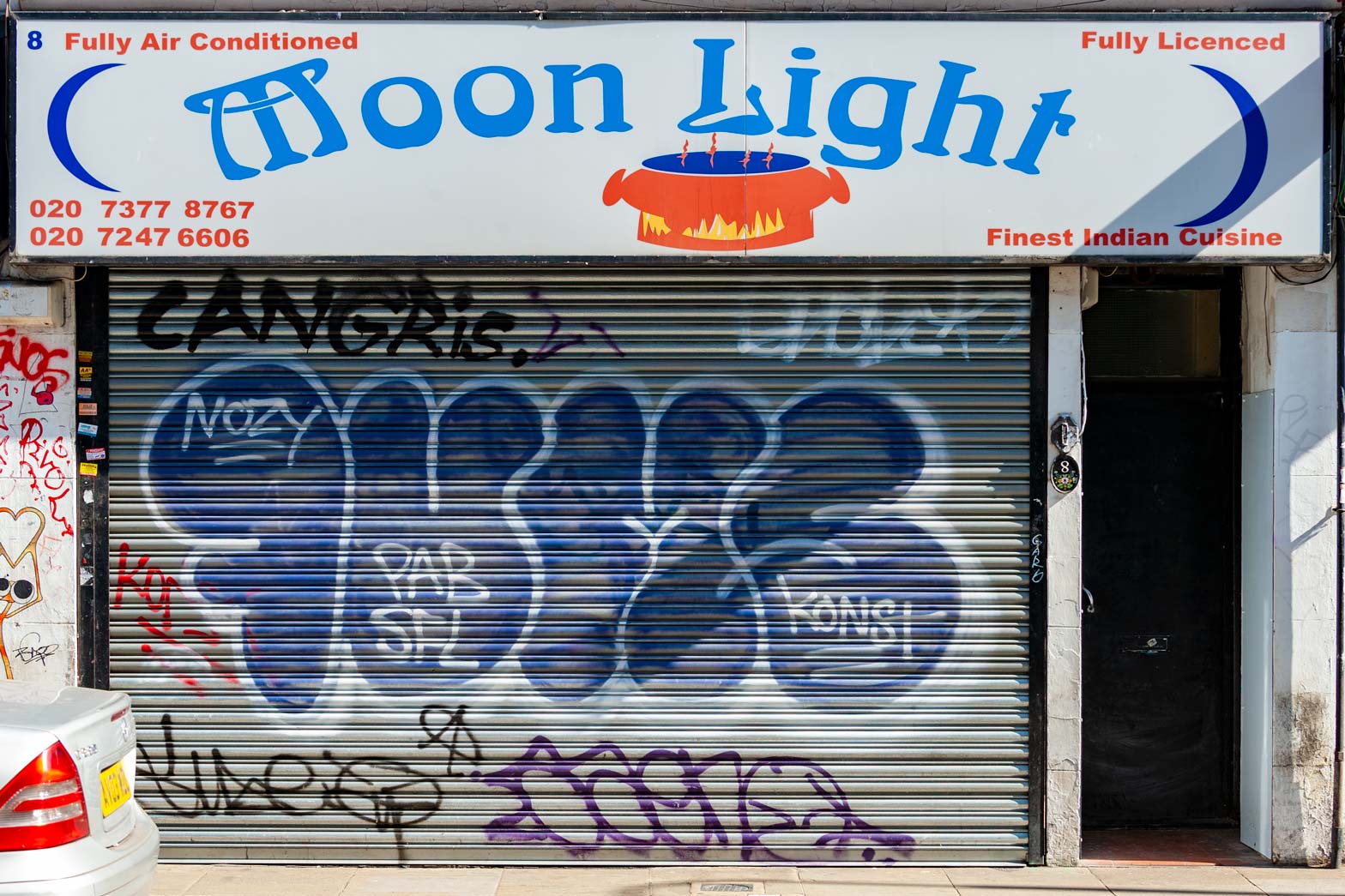
Moonlight
Moonlight is a small, family-run Bangladeshi restaurant and it’s the first one you will see as you go north along Brick Lane.
The proprietor is proud of his curry as well as the Food Standards Agency’s five-star hygiene rating. ‘We worked hard to get that,’ he says, ‘and it helps to reassure our customers.’ Moonlight was founded in 2008, and it has survived when all the other curry restaurants in this stretch of the street (including Osborn Street) have closed. However, during the pandemic, business has been hit hard. Apart from the ‘Eat Out to Help Out’ scheme in the late summer of 2020, turnover has been a fraction of what it should be. So much so that despite being eligible for tax and other business benefits, the owner decided to work part-time as a security guard at a property in Docklands to support himself and his family. ‘I don’t want to take money from the government,’ he explains, ‘I’d much prefer it to be given to people who really need it – you know, the poor people.’
Like other curry restaurants in the area, Moonlight remains focused on dine-in customers rather than takeaway or the type of e-commerce pioneered by food ordering and delivery platforms like Deliveroo, Just Eat and Uber Eats. Many of Moonlight’s customers are tourists – international and domestic – who typically enjoy short stays in the many hotels in the Whitechapel and Shoreditch area. While domestic tourists are now returning, there is still no sign of visitors from Europe or North America. Despite the current issues, the owner is looking forward to the opening of the Whitechapel Crossrail station in 2022. ‘We are hoping that will increase footfall to Brick Lane, and some of those people will want to eat our curry,’ he says.